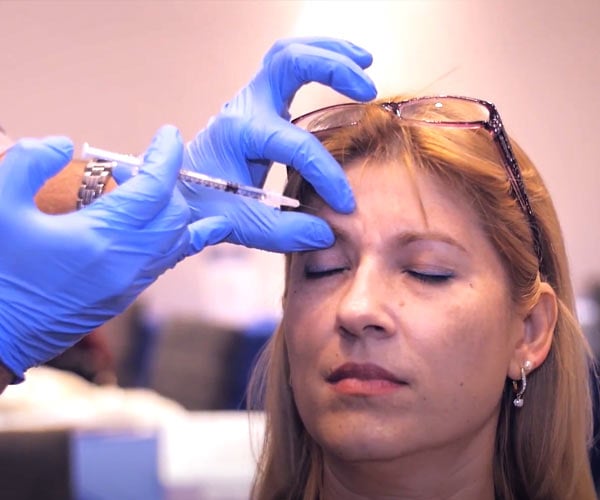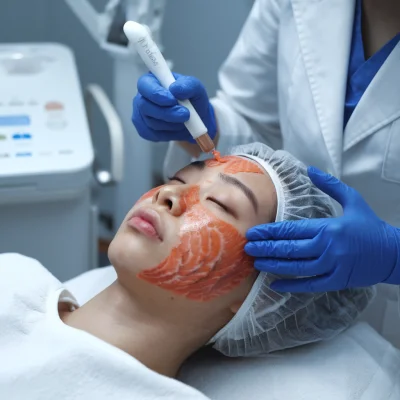The demand for skilled cosmetic nurses is accelerating at a rapid pace, outpacing the projected growth for the overall nursing profession. According to the Bureau of Labor Statistics, the number of people employed as nurse practitioners, nurse anesthetists, and nurse midwives — a category that includes cosmetic nurses — is set to jump by 45% between 2020 and 2030. This is more than seven times the projected growth rate for the overall U.S. labor force during the same period.
The number of cosmetic nursing jobs available is also on the rise. Industry reports estimate there are currently around 30,000 cosmetic nurses (also called aesthetic nurses) practicing in the United States. This figure is expected to grow by 20-25% over the next 5-10 years, as consumer demand for minimally invasive cosmetic treatments continues to surge.
Several key factors are driving the increased need for cosmetic nurses:
Rise in Popularity of Minimally Invasive Procedures: Cosmetic treatments like Botox®, dermal fillers, and laser skin resurfacing have become increasingly mainstream, with more people seeking out these non-surgical options. As the market for these minimally invasive procedures expands, so too does the demand for qualified nurses to administer them.
Aging Population: As the Baby Boom generation, Generation X, and even the Millennials continue to age, more people than ever before are seeking out cosmetic treatments to maintain a youthful appearance. Cosmetic nurses play a vital role in providing these age-management services.
Growing Consumer Preference for Nurse-Administered Treatments: Patients are becoming more discerning about who provides their cosmetic treatments, often preferring the expertise and medical background of a nurse over a non-medical aesthetician. This shift in consumer preferences has created new opportunities for qualified cosmetic nurses.
Expansion of Medical Spas and Aesthetic Clinics: The rise of medical spas and dedicated aesthetic practices has increased the number of facilities seeking out skilled cosmetic nurses to join their teams and perform a wide range of minimally invasive procedures.
With such robust job growth projections and a multitude of factors driving increased demand, now is an excellent time for registered nurses to consider specializing in the lucrative and rewarding field of cosmetic nursing.
Read on to learn more about what to expect from cosmetic nurse school, where to find appropriate nursing programs, and how to choose a cosmetic nursing specialty that aligns with your skills.
What Is Cosmetic Nurse School?
Cosmetic nurse schools teach credentialed nurses — including registered nurses, LPNs, and NPs — to perform or assist with a range of aesthetic procedures in clinical settings.
Cosmetic nurses generally aren’t permitted to perform surgical procedures that qualify as “traditional” plastic surgery. However, in many states, they can perform or help with minimally invasive cosmetic procedures such as dermal filler and Botox® injections.
Cosmetic nursing programs typically cover the following curriculum and course topics:
- Anatomy and physiology of the face, skin, and body, including an in-depth understanding of facial aesthetics and the aging process
- Principles and techniques of common cosmetic procedures like Botox, dermal fillers, laser treatments, chemical peels, and body contouring
- Proper injection techniques, dosing, and management of potential complications or side effects
- Patient assessment, treatment planning, and pre/post-procedure care
- Ethical and legal considerations in the practice of cosmetic nursing
- Business and practice management skills for working in medical spas or aesthetic clinics
Cosmetic nurse schools provide hands-on training in other minimally invasive procedures as well:
- Permanent hair removal
- Tattoo removal
- Chemical peels
- Laser skin treatments
- Scar removal and other aesthetic surgeries
- Liposuction, Coolsculpting, and other fat removal procedures
- Other injectable treatments commonly offered at medical spas, such as MIC/B12 injections
How to Find Cosmetic Nurse Training
Look for accredited training institutions that offer online and in-person instruction in procedures commonly performed or assisted by cosmetic nurses. These courses should:
- Be taught by licensed, board-certified medical professionals
- Include a mix of classroom-based didactic instruction and hands-on training
- Come with comprehensive course materials that participants can review at their convenience
- Confer certification following successful completion
- Count toward continuing medical education requirements for nurses
- Offer the option to continue instruction beyond the introductory level — for example, following up 100-level Botox and filler courses with advanced Botox and filler training
How to Begin Your Cosmetic Nursing Career
High demand for cosmetic nurses means training to become one is well worth the effort.
But it does take time. If you’re not yet a professional nurse, it’ll take longer, as you’ll need to obtain at least an associate’s degree in nursing and pass the NCLEX-RN exam, which is the National Council Licensure Examination for Registered Nurses.
Even if you’re a nurse already, you’ll need to work under a board-certified physician for two years while logging at least 1,000 hours in one of four aesthetic disciplines:
- Facial plastic surgery
- General plastic surgery
- Dermatology
- Ophthalmology
You’ll then need to earn your official aesthetic nursing certification through the Plastic Surgical Nursing Certification Board. Choose from one of two tracks — Certified Plastic Surgical Nurse (CPSN) or Certified Aesthetic Nurse Specialist (CANS) — and pass the required exam.
Finally, you’ll need to maintain your certification by periodically returning to cosmetic nurse school for continuing medical education. Expect to log at least 45 contact hours every three years. And remember to choose your cosmetic nurse school wisely.
With such robust job growth projections and a multitude of factors driving increased demand, now is an excellent time for registered nurses to consider specializing in the lucrative and rewarding field of cosmetic nursing.





